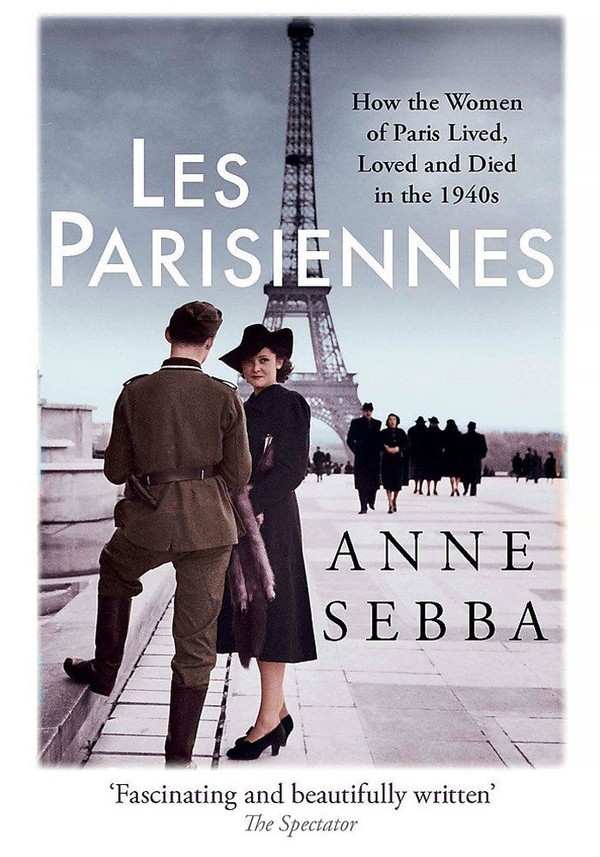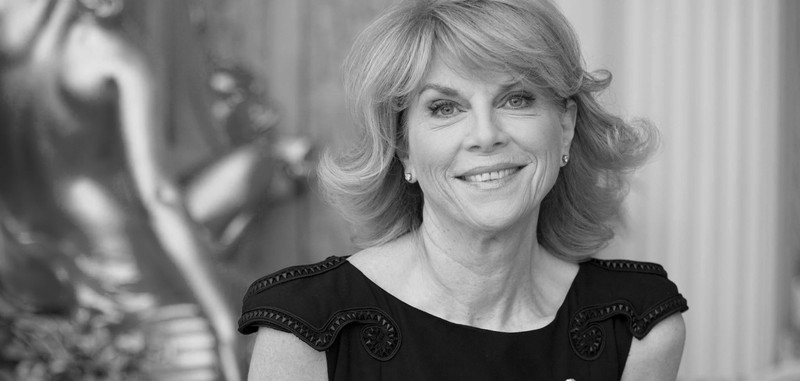
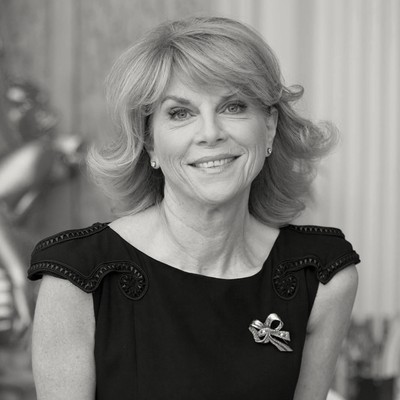
In Conversation With… Anne Sebba
I always wanted to be a journalist, even as a child. I loved the idea of being a news reporter and my parents indulged my ambition by buying me a typewriter when I was eight. I also enjoyed history, English and languages at school, but it was a funny time for women and girls back then. On the whole, my parents supported my desire to work – they encouraged both my sister and I to work in shops when we were teenagers – but they didn’t let me stay on for an additional term to try for Oxbridge. I can’t say they were keen on the idea of university and they even made me take a secretarial course as ‘back up’. I think the term ‘career’ was a bit alien to them.
In the end, I studied history at King’s College London. I remember telling the careers councillor I wanted to be a news reporter and she told me to walk across the street to the BBC World Service (located on The Strand in those days) and ‘get myself a job’. I only tell this story to make it clear how different it was in the early 70s. It seemed I walked into Bush House and took up a position in the Arabic services. I was unbelievably lucky.
When I was 20, I was accepted onto the graduate training programme at Reuters. It was mainly because I spoke French, Russian and German. It was funny – my parents were never impressed by the idea of my going to university, but they loved that I was going to Rome to be trained with Reuters, especially because I was the first woman to be accepted onto the programme. Looking back, I’d hardly had any life experience up until this point and Italian wasn’t even one of the languages I spoke! It wouldn’t happen these days…
Make no mistake, I was terrified. I did get thrown in at the deep end, but my own naivety probably stood me in good stead. Women were treated differently – I’d not been taught to think anything of it when male colleagues commented on the way I looked. It certainly never occurred to me to sue them! Sadly, although I was the first woman Reuters had hired onto their graduate scheme, I was also the first woman they sacked for getting pregnant. This was long before any maternity laws were in place, and they believed I couldn’t be a foreign correspondent and a mother. I fought back a bit – but not nearly hard enough.
After my journalism career came to an end, I started writing books. My first project was a biography of Enid Bagnold, the playwright who wrote National Velvet and whose husband was the chairman of Reuters. The Reuters archive was very helpful and it gave me a way into this world. So it was probably a good thing I didn’t stamp my foot harder when I was let go!
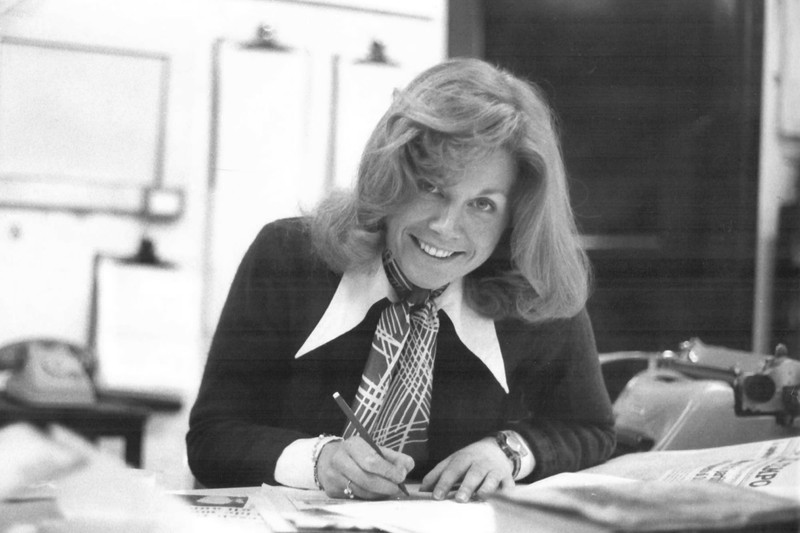
I also wrote a biography of Jennie Churchill, Winston’s mother. I was frustrated by her less-than-positive perception in history. She was an American who the establishment didn’t get – neither understood the other, and she was heavily criticised as a result. When I delivered that book, I remember my agent telling me my next project should be Wallis Simpson, but I didn’t think there was anything new to say about her. There had been so many biographies written about her already.
That said, the biographies that did exist were mostly written by men. And there really hadn’t been a huge amount of focus on Ernest Simpson, her second husband whom she divorced in order to marry the Duke of Windsor. He’d been largely written off as a flat character who just capitulated to his wife. But when I discovered he’d had a son called Aharon Solomons with his third wife – now a free diver living in Mexico – I decided to pursue him. Suffice to say, Aharon was quite surprised to hear from me. He was born three years after the abdication, so he claimed never to have known Wallis, but he eventually invited me to spend some time with him in Mexico.
It turned out Aharon had rejected a lot of his father’s lifestyle. He went to live in Israel on discovering his Jewish roots and was in the army before becoming an expert free diver. By the end of our week together, he’d shared lots of contacts with me – one of whom had a pile of letters in the attic. Around 15 of these letters (still in their original envelopes) had been exchanged between Wallis and Ernest during their divorce, which proved that it was an illegal divorce after all. To make it legal at the time – thus freeing Wallis to marry Edward VIII – they had to make it look like one of them – Ernest – had been unfaithful. But these letters proved that hadn’t been the case. I knew it was going to change history.
My Wallis Simpson biography came about quite by accident. I’d written about seven other books by the time I discovered the letters between her and Ernest. What was interesting was it made me realise that 1936 was a very key year in 20th century history. Not only did the Duke of Windsor abdicate in the December, but it was also the year Hitler marched into the Rhineland and when the Spanish Civil War broke out.

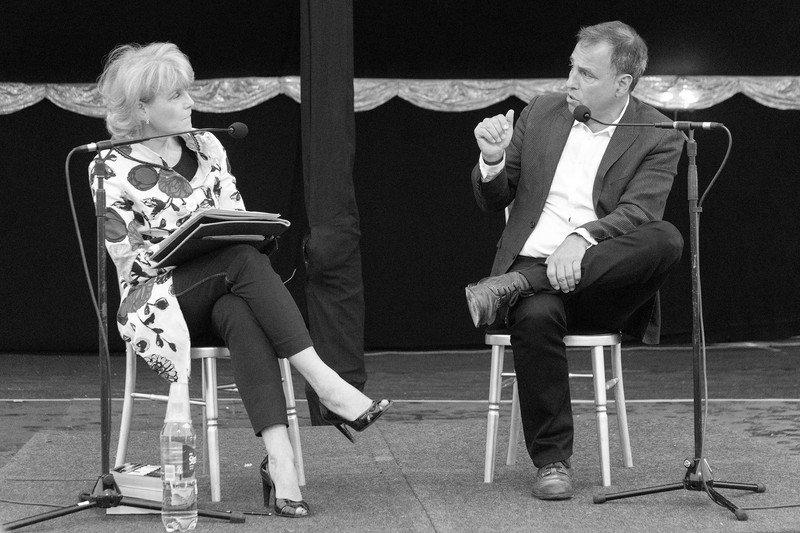
I don’t subscribe to the comparisons between Wallis Simpson and Meghan Markle. The tabloid media can’t seem to resist the salaciousness but, really, the historical facts are different. Wallis was divorcing her second husband to marry the heir to the throne at a time when the Church pretty much forbade divorce. Meghan, by comparison, was an independent woman who had only been divorced once, at a time when divorce was quite commonplace. She also wasn’t marrying the heir. Yes, they’re both feisty Americans, but as far as I’m concerned, the comparison ends there.
I usually spend about five years writing a biography, so any subject has to warrant sufficient interest for me to invest the time. It’s about 70 years since Ethel Rosenberg was executed by electrocution for espionage – long enough for the dust to settle, but recent enough for people with first-hand knowledge of the case – including her sons, her psychotherapist and a woman she was in prison with – to still be alive. Everyone pretty much agrees it was a terrible miscarriage of justice and a corrupt trial, so if my book is about one thing, it’s about the importance of the rule of law.
I’ve known about the Ethel Rosenberg story of years. After I left Reuters, I lived in New York and came across The Book of Daniel, a fictionalised account of the trial. A seed was lodged and, in 2016, after publishing Les Parisiennes about the women in Paris during the Second World War, the publisher said they wanted a book on spies. Ethel was accused of being one, even though there was no proof. She was only put in prison – specifically solitary confinement – just to coerce her husband into talking. She really wasn’t seen as an independent person, which is what my book set out to correct.
I was lucky to get most of the in-person research done pre-lockdown. A lot of research can be done online – for instance, the entire transcript from the trial and the conclusions from the grand jury are all available digitally. But those first-person accounts are where a biography really comes to life. I like travelling, too. I went to Wallis Simpson’s school and found the atmosphere helped me understand who she was and her legacy. She’s their most famous pupil and they’re very proud of her! People only know her as a controversial figure – the Queen Mother called her ‘the lowest of the low’ – but she actually came from the Baltimore elite.
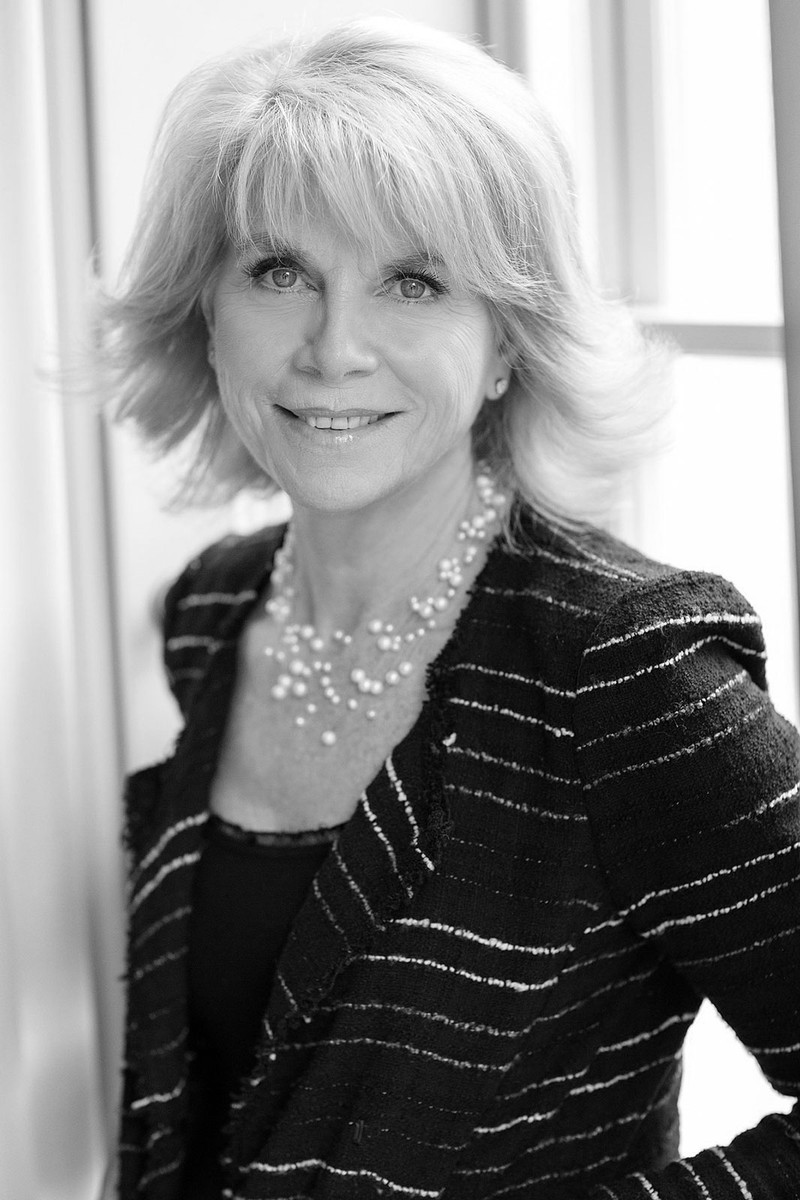
My passion for biography stems from my journalism career. You can’t be a journalist if you’re not interested in people, and it’s hard to write biographies if you’re not also interested in the same stories. That’s the difference between biography and historical non-fiction – those books don’t always focus on the faces at the heart of the story. I’ve never found it that difficult to get people to talk to me. I suppose the only difference comes down to whether the biography is authorised or not. But even with the non-authorised ones, people are often happy to co-operate behind the scenes. By now, people also trust me to write something that’s nuanced, fair and well-researched.
You never know when a book is finished. It’s impossible to know absolutely everything about a person’s life. But there comes a point where you know enough to paint a comprehensive picture. If you discover new information after publication, there’s often a chance to include extra material in a paperback edition. My advice to any women looking to get into writing would be ‘jump in’. Get your creative juices flowing by taking a creative writing course and see where you end up. Also, look into your own family history and see if there are any interesting stories you could follow up at the National Archives. Once you’ve found your voice, you’re off.
The age of doorstop biographies is probably over. It’s more interesting to take a particular angle on someone’s life – maybe a period of their work or their younger years – to give readers a way in. For me, it’s about what made someone memorable. Also, World War II is a fascinating period because a lot of ordinary people did extraordinary things. You have to be smart about this genre, otherwise it’s boring. Claire Tomalin is someone who’s work I really admire. Her biography of Nelly Ternan is a masterclass in how women often play such a pivotal role.
Later in life, our identities change. I lost my husband in the middle of writing the Ethel book and I could have given up. But I knew that’s not what he would have wanted. You also start to empathise with different kinds of people, so that will probably influence who I write about next. In the future, I can see multiple biographies being written about the wives of recent Prime Ministers – Samantha Cameron, Carrie Johnson – the question is very much about the power they’re wielding behind the scenes. I have a few thoughts about who I might look at next. But we’re living through difficult times, so it’s got to be something or someone people really care about.
There’s still a lot of the world left to discover. So much of that opportunity has been taken away over the last two years, so I’m looking forward to travelling more and meeting new people. I’m still as curious as ever. None of us know what lies in store – my husband had a heart attack at just 69, so I see every day as a bonus. These days, I feel I’ve got lots of experience to impart and I’m aware how dramatically women’s lives have changed over the course of my own. But it’s exciting – there are so many things out there waiting to be tried.
‘Ethel Rosenberg The Short Life and Great Betrayal of an American Wife and Mother’ by Anne Sebba will be published in paperback by Weidenfeld and Nicholson on 23 June, £9.99. To pre-order, click here.
Shop Anne's Books Below...
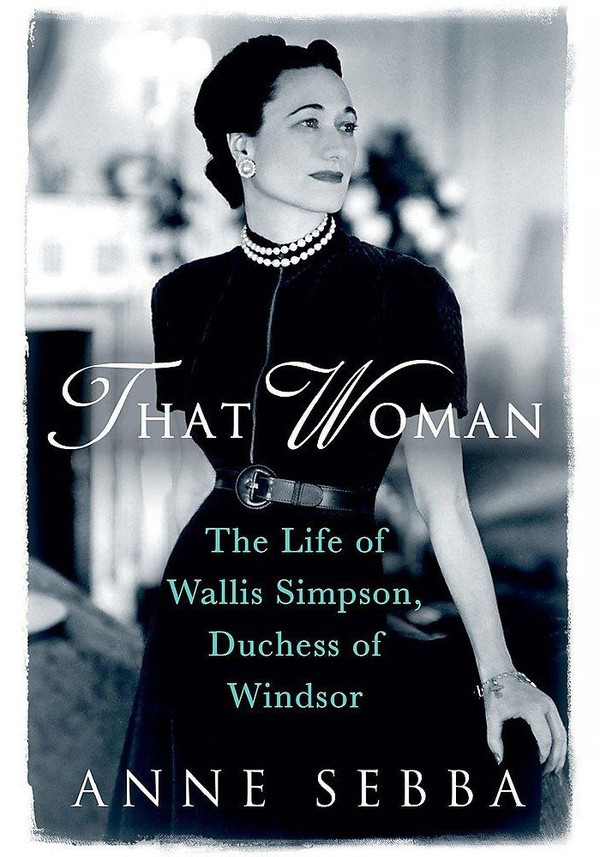
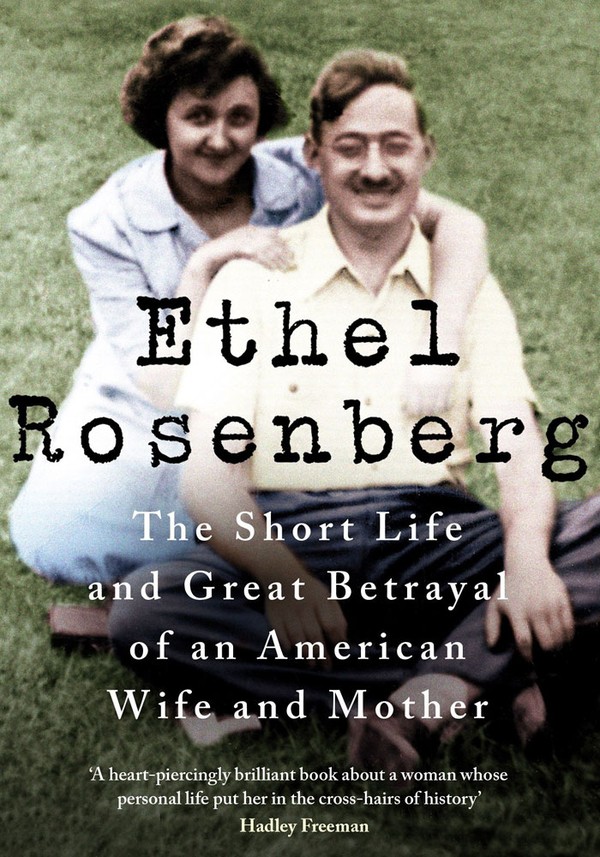
DISCLAIMER: We endeavour to always credit the correct original source of every image we use. If you think a credit may be incorrect, please contact us at info@sheerluxe.com.
